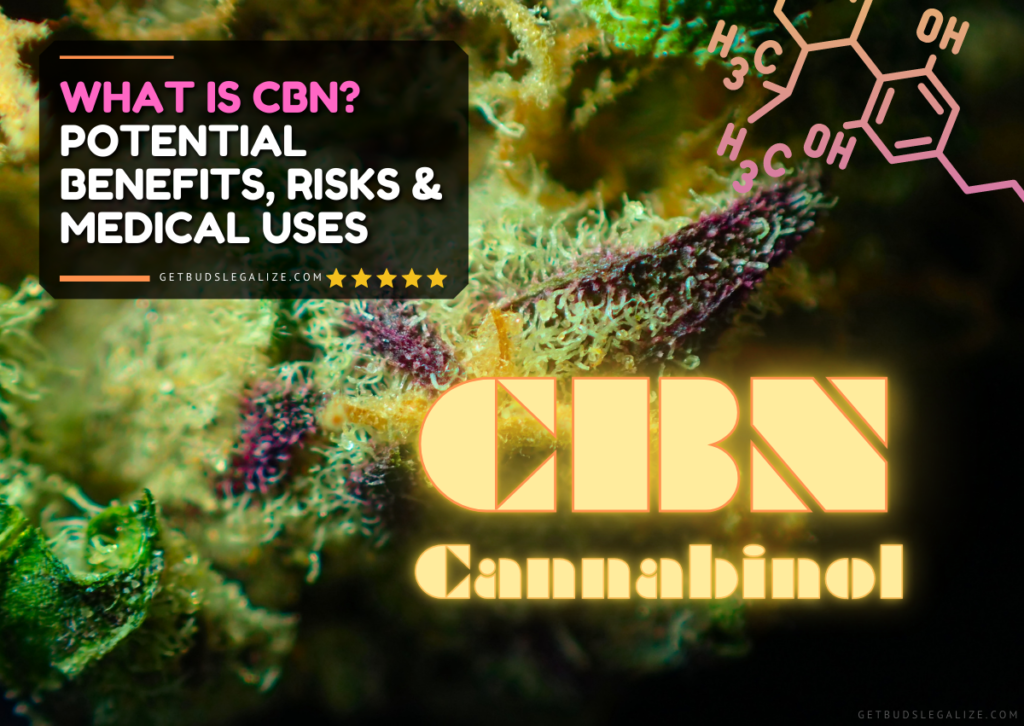What Is CBN (Cannabinol)? Potential Benefits, Risks & Medical Uses
CBN or Cannabinol is a rare cannabinoid found at very low levels in the cannabis plant. It is formed when another cannabinoid, called tetrahydrocannabinol (THC), degrades due to exposure to heat, air, and/or light. Unlike THC, CBN is not known to cause intoxicating effects, but it may have some therapeutic potential for certain conditions. In this blog post, we will explore what CBN is, how it works in your body, and what are its possible benefits and risks.
What Is CBN Cannabinoid?
CBN is short for cannabinol, a cannabinoid that is produced when THC is exposed to heat, light, or oxygen. This means that CBN is more abundant in aged or poorly stored cannabis. CBN was actually the first cannabinoid to be isolated and identified by scientists in 1896. However, it has received less attention than other cannabinoids like THC and CBD until recently.
CBN is considered a minor cannabinoid because it is present in very low concentrations in most cannabis strains. However, some breeders are developing strains that have higher levels of CBN. You can also find CBN in various products such as oils, capsules, edibles, topicals, and vapes.
How Does CBN Work In Your Body?
Like other cannabinoids, CBN interacts with your endocannabinoid system (ECS), a network of receptors and molecules that regulate various functions and processes in your body. The ECS is involved in maintaining homeostasis, or balance, in your body. It influences your mood, appetite, sleep, pain, inflammation, immune system, memory, and more.
The ECS has two main types of cannabinoid receptors: CB1 and CB2. CB1 receptors are mostly found in your brain and nervous system, while CB2 receptors are mostly found in your immune system and peripheral organs. Different cannabinoids have different affinities for these receptors. For example, THC binds strongly to CB1 receptors and causes psychoactive effects. CBD binds weakly to both types of receptors and modulates their activity.
CBN has a low affinity for both CB1 and CB2 receptors. This means that it does not bind strongly to them and does not cause significant effects on its own. However, CBN may enhance the effects of other cannabinoids by acting as an entourage effect. The entourage effect is the idea that the different components of cannabis work together synergistically to produce a greater effect than any single component alone.
Is CBN Psychoactive?
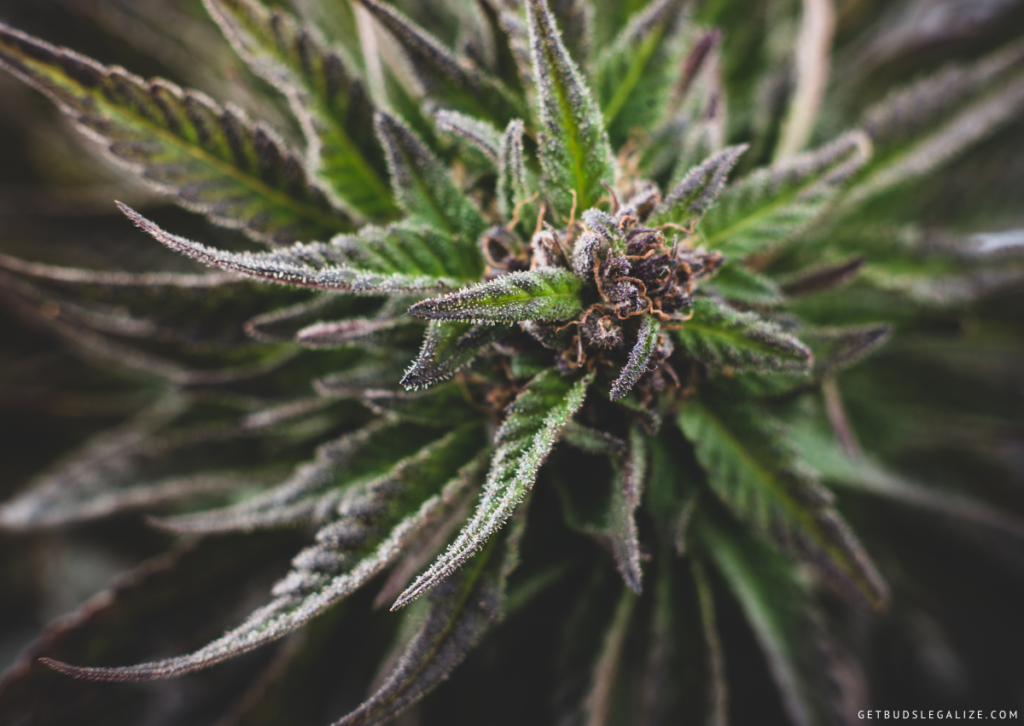
CBN is generally considered to be non-psychoactive or mildly psychoactive at best. This means that it does not cause significant changes in perception, cognition, or behavior as THC does. However, some users may experience some mild sedative or relaxing effects from CBN, especially when combined with THC or other cannabinoids.
What Are The CBN Benefits?
Research on CBN is limited, especially in humans, but some preclinical studies suggest that CBN may have some therapeutic potential benefits for certain conditions. Some of the possible benefits include:
- Pain relief: CBN may have analgesic properties by activating CB1 and CB2 receptors and TRPV2 channels. A study in mice found that CBN reduced pain responses to thermal stimuli.
- Anti-inflammatory: CBN may have anti-inflammatory effects by activating CB2 receptors and PPAR-alpha receptors. A study in rats found that CBN reduced paw edema induced by carrageenan.
- Antibacterial: CBN may have antibacterial activity against various strains of bacteria, including methicillin-resistant Staphylococcus aureus (MRSA). A study in vitro found that CBN inhibited the growth of MRSA.
- Neuroprotective: CBN may have neuroprotective effects by modulating oxidative stress and inflammation in the brain. A study in rats found that CBN reduced neuronal damage caused by ischemia.
- Appetite stimulation: CBN may have appetite-stimulating effects by activating CB1 receptors. A study in rats found that CBN increased food intake compared to placebo.
- Sleep aid: CBN may have sedative effects by enhancing the activity of GABA, a neurotransmitter that regulates sleep and relaxation. A study in humans found that CBN combined with THC increased sleep time and reduced sleep latency.
What Are The CBN Side Effects?
CBN is generally well tolerated and has a low risk of adverse effects. Nonetheless, certain users may encounter mild side effects such as:
- Drowsiness: CBN may cause drowsiness or sleepiness, especially when taken in high doses or combined with other sedatives. Users should avoid driving or operating heavy machinery after taking CBN.
- Dry mouth: CBN may cause dry mouth or xerostomia, a condition where the salivary glands produce less saliva. Users should drink plenty of water and use sugar-free gum or candy to relieve dry mouth.
- Low blood pressure: CBN may cause low blood pressure or hypotension, a condition where the blood pressure drops below normal levels. Users should monitor their blood pressure and consult their doctor if they experience symptoms such as dizziness, fainting, or blurred vision.
- Drug interactions: CBN may interact with other medications or supplements that affect the ECS, such as anticonvulsants, antidepressants, antipsychotics, opioids, NSAIDs, and other cannabinoids. Users should consult their doctor before taking CBN if they are using any of these substances. antihistamines, antipsychotics, opioids, sedatives, etc.
How Do I Use CBN?
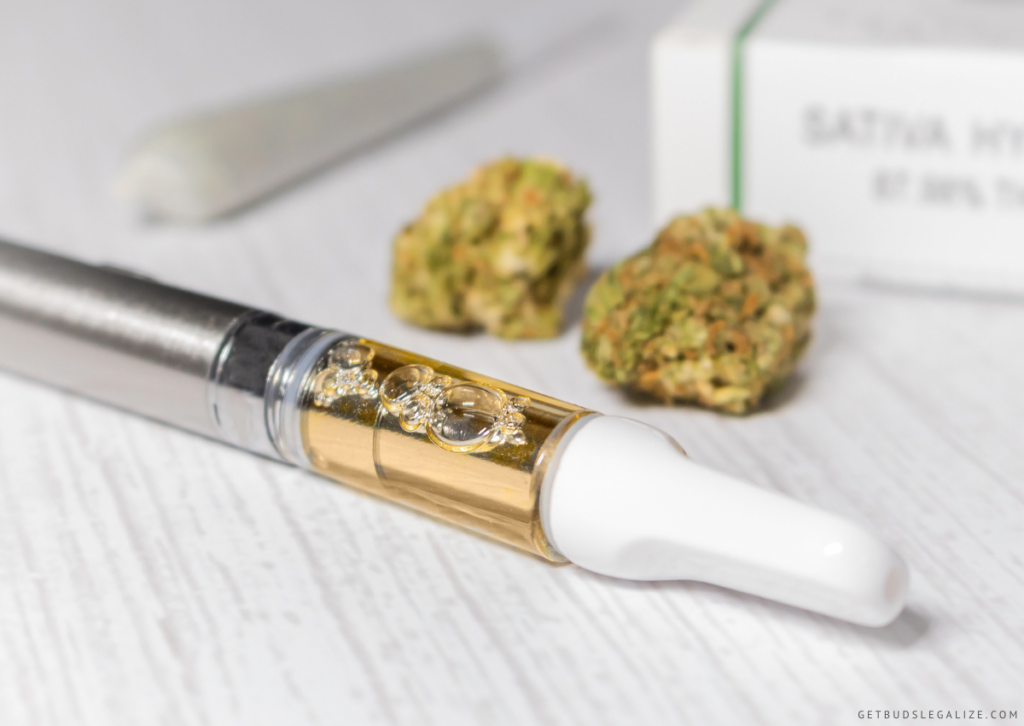
CBN can be consumed in various ways depending on your preference and needs. Some of the common methods are:
- Oils: CBN oils are liquid extracts that contain CBN and other cannabinoids. You can take them sublingually (under your tongue) or add them to your food or drinks. Oils are easy to use and dose, and they have a fast onset of effects.
- Capsules: CBN capsules are softgels or pills that contain CBN and other cannabinoids. You can swallow them with water or food. Capsules are discreet and convenient, and they have a longer-lasting effect.
- Edibles: CBN edibles are foods or drinks that are infused with CBN and other cannabinoids. You can eat or drink them as you would normally. Edibles are tasty and fun, but they have a delayed onset and variable effect depending on your metabolism and digestion.
- Topicals: CBN topicals are creams, lotions, balms, or patches that contain CBN and other cannabinoids. You can apply them to your skin where you feel pain or inflammation. Topicals are localized and non-intoxicating, and they have a quick onset of effects.
- Vapes: CBN vapes are cartridges, pens, or devices that contain CBN and other cannabinoids in a liquid form. You can inhale them through your mouth or nose. Vapes are fast-acting and potent, but they may have some health risks associated with vaping.
How Much CBN Should I Take?
The dosage of CBN depends on several factors, such as the product type, potency, body weight, metabolism, tolerance, and medical condition. There is no official recommended dosage of CBN for any specific purpose, as the research on its optimal dose is still lacking. However, some general guidelines are:
1. Start Low and Go Slow:
Begin with a low dose of CBN (such as 2.5 to 5 mg) and observe its effects before increasing it gradually until you find your optimal dose that provides the desired benefits without causing adverse effects.
2. Consult Your Doctor:
If you have any medical condition or take any medication that may interact with CBN, consult your doctor before using it. Your doctor can help you determine the appropriate dose and monitor your response and safety.
3. Be Cautious:
Do not use more than 20 mg of CBN per day without medical supervision. Do not use CBN if you are pregnant or breastfeeding. Do not use CBN if you are allergic to cannabis or its components. Do not use CBN if you have a history of substance abuse or addiction.
CBD vs CBN vs CBG: What Are The Differences Between Them?
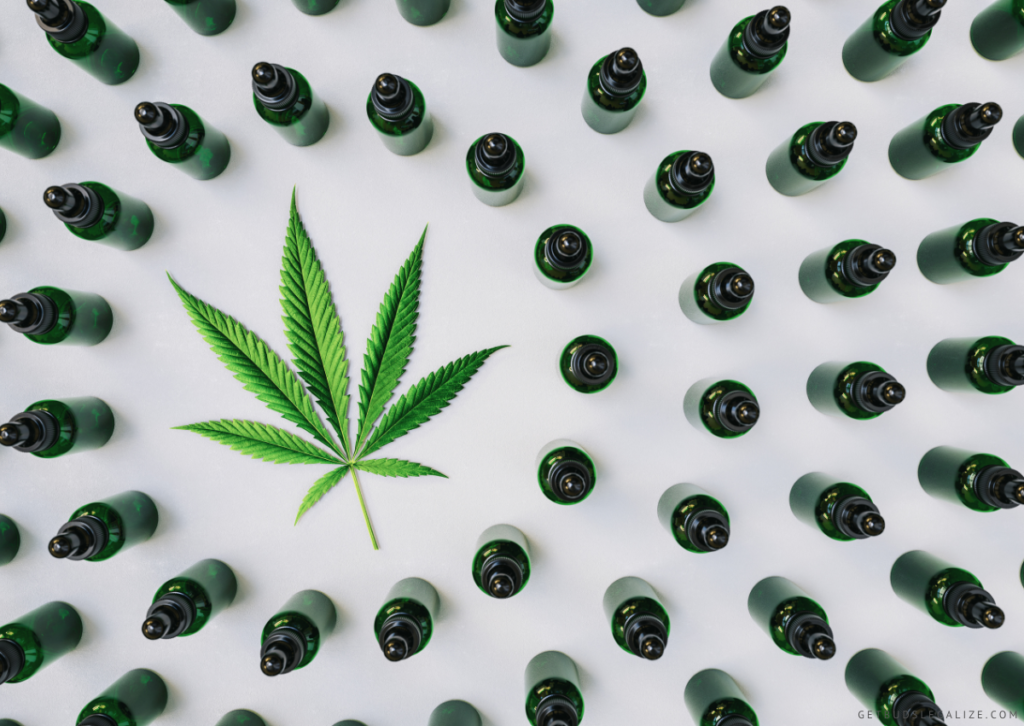
CBD, CBN, and CBG are three of the most popular cannabinoids in the cannabis market. They have some similarities and differences in their chemical structure, origin, effects, benefits, and uses. Here is a brief comparison:
1. Chemical Structure:
CBD, CBN, and CBG have similar molecular structures but different arrangements of atoms. CBD has a hydroxyl group (OH) attached to its ring structure while CBN has a ketone group (C=O) attached to its ring structure. CBG has no additional groups attached to its ring structure.
2. Origin:
CBD is derived from CBDA (cannabidiolic acid), a precursor cannabinoid that is found in raw cannabis plants. CBDA is converted to CBD by heat or light exposure.
CBN is derived from THC (tetrahydrocannabinol), the main psychoactive cannabinoid in cannabis. THC is converted to CBN by oxidation over time or by heat exposure.
CBG is derived from CBGA (cannabigerolic acid), the parent cannabinoid that can also convert into CBDA, THCA, or CBCA. CBGA is converted to CBG by heat or light exposure.
3. Effects:
CBD, CBN, and CBG are all non-intoxicating cannabinoids that interact with the endocannabinoid system (ECS), a network of receptors and enzymes that regulate various physiological functions.
CBD does not bind directly to the cannabinoid receptors (CB1 and CB2) but influences them indirectly by modulating other receptors and enzymes. CBD may have various health and wellness benefits, such as reducing inflammation, pain, anxiety, seizures, and more.
CBN binds directly to the CB1 and CB2 receptors but with less affinity than THC. CBN may have some psychoactive effects, but much weaker than THC. CBN may also have various health benefits, such as promoting sleep, appetite, bone health, and more.
CBG binds directly to the CB1 and CB2 receptors but with more affinity than CBD or CBN. CBG may have some psychoactive effects, but also much weaker than THC. CBG may also have various health benefits, such as improving eye health, glaucoma, anxiety, pain, inflammation, and more.
Where Can I Buy CBN?
CBN products are not widely available in the market, as they are still relatively new and niche. However, some online retailers and dispensaries may offer them in various forms, such as oils, tinctures, capsules, edibles, or topicals. Some products may contain pure CBN isolate, while others may contain full-spectrum or broad-spectrum extracts that include other cannabinoids and terpenes.
When buying CBN products, it is important to look for reputable and trustworthy sources that provide third-party lab testing results and certificates of analysis (COAs) that verify the quality, potency, and purity of the products. It is also advisable to check the legal status of CBN and cannabis in your area before purchasing or using them.
Bottom Line
There is currently limited evidence to support the benefits of CBN, as most studies are preclinical or based on anecdotal reports. Therefore, we advise you to consult your doctor before using it and to use it with caution and moderation.
FAQs
CBN is generally considered safe, but it does come with some potential risks and interactions. It has been known to cause drowsiness, which can impair your ability to drive or operate machinery. Additionally, CBN has been known to lower blood pressure and may interact with blood thinners or other medications that also affect blood pressure. Furthermore, CBN may affect the metabolism of some drugs by inhibiting certain liver enzymes.
For this reason, it’s important to exercise caution when using CBN alongside other substances and monitor your reactions accordingly.
The legal status of CBN depends on the source and amount of THC in the product. If the product is derived from hemp (cannabis with less than 0.3% THC) and contains no more than 0.3% THC, it may be legal under federal law and in most states.
However, if the product is derived from marijuana (cannabis with more than 0.3% THC) or contains more than 0.3% THC, it may be illegal under federal law and in some states. Always check your local laws before buying or using any cannabis product.
One of the most common reasons people use CBN is to improve their sleep quality and duration. CBN may have sedative effects that can help people fall asleep faster and stay asleep longer. Some studies suggest that CBN may enhance the sleep-inducing effects of THC when taken together. However, more research is needed to confirm the optimal dose and combination of CBN and other cannabinoids for sleep.
If you are interested in trying CBN gummies for sleep, you should follow the dosage recommendations by the manufacturer and start with a low dose. The optimal dose of CBN may vary depending on your body weight, metabolism, tolerance, and desired effects.
Most CBN gummies contain between 5mg to 15mg of CBN per serving. You should also consult your doctor before taking CBN gummies, especially if you have any medical conditions or are taking any medications. CBN gummies may interact with some drugs, such as sedatives, antidepressants, and blood thinners.
There is no official recommended dosage for CBN, as it is not well-studied in humans. However, some experts suggest starting with a low dose of 2.5 mg and increasing gradually until you find the optimal dose for your desired effects. You should consult your doctor before using CBN, especially if you have any medical conditions or take any medications.
CBN may help with anxiety by reducing stress and promoting relaxation. However, there is not enough evidence to support its effectiveness for this purpose. More research is needed to understand how CBN affects anxiety and what dosage is best.
CBN may cause some side effects, such as tiredness, dizziness, appetite changes, upset stomach, and dry mouth, which are usually mild and short-lived. The effects of CBN may last 4–6 hours depending on the dose and metabolism.
Most drug tests do not screen for CBN specifically, but rather for THC metabolites that indicate cannabis use. However, some drug tests may cross-react with other cannabinoids, including CBN, and produce a false positive result. If you use any cannabis products that contain THC or CBN, you may test positive for cannabis on a drug test.
Like any other cannabinoid, CBN may degrade over time due to exposure to light, heat, oxygen, or moisture. This may affect its potency and quality. To preserve your CBN, store it in a cool, dark, and dry place. You can also use an airtight container to prevent oxidation. Check the expiration date on the label and follow the manufacturer’s instructions for proper use and storage.
The answer is not straightforward, as CBD and CBN are two different cannabinoids that have different origins and effects. CBD is derived from the hemp plant and is non-psychoactive, meaning it does not make you feel high.
CBN is the product of the oxidization of THC, the psychoactive chemical in marijuana. CBN is also non-psychoactive, but it has more sedative properties than CBD.
CBD oil may contain trace amounts of CBN, but not enough to produce significant effects. To get the benefits of both cannabinoids, some people use products that combine CBD and CBN in a specific ratio, such as 1:1 or 3:1.
ILGM Fertilizer
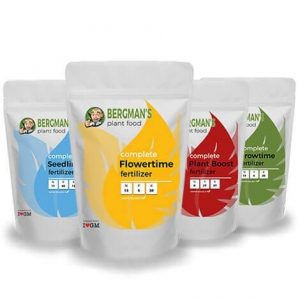
- From seedling to harvest, give your plants everything they need.
- Enough for feeding at least 5 plants.
- Discounted Package Deal
- Works well in soil, hydroponics, and other growing mediums.
- The best way to treat your plants
ILGM Plant Protector
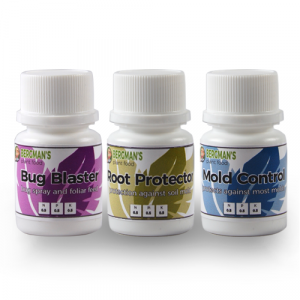
- Protect your cannabis from diseases and harmful pests.
- Contains three 20 ml bottles.
- Enough supplies to protect 20 plants.
- It can be used in soil, hydroponic, and all other growing mediums.

